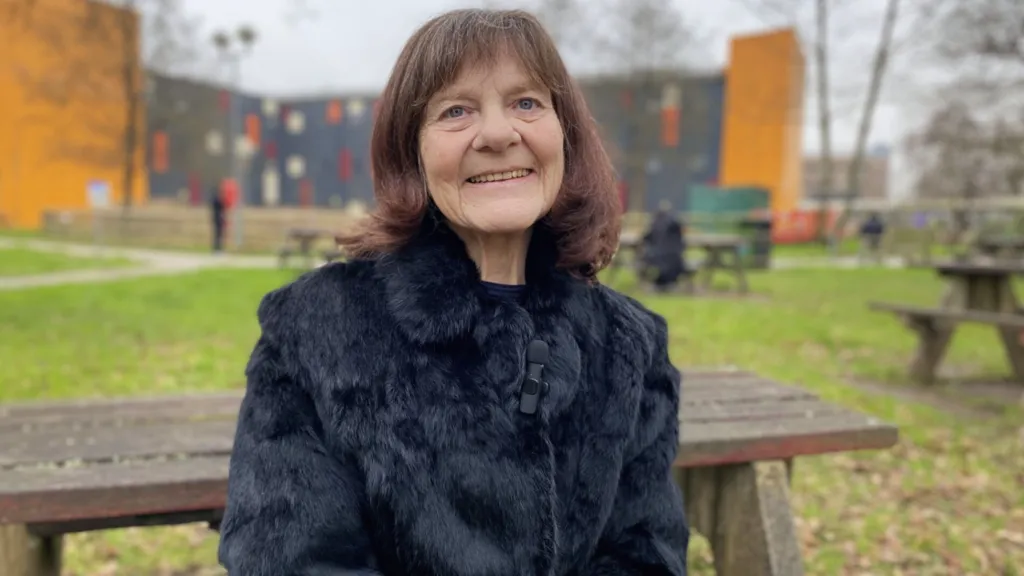Spending time with someone who is dying is something most of us will only have to experience maybe a handful of times in a lifetime.
For Hazel Orchard, it is a weekly occurrence.
Hazel is a hospital companion and volunteers her time offering a friendly ear to end-of-life patients.
The role involves listening, discussing challenging topics such as care plans and simply being present when family members need to rest or step away.
She said although it brought her grief and sadness it had also enriched her life.
"It is very emotional, I won't dilute that in any way, shape or form," said Hazel from Cardiff.
"But to support people on their journey as their body ebbs ever flowing to its final resting place is nothing other than a privilege."
Hazel, 65, began volunteering for Marie Curie in September and since then has supported 10 patients, three of whom have now died.
"I do go and sit and light a candle for them and their families," she said.
"It is important to for me to express my own grief in a way… to be able to refuel and recharge and to be able to continue to give what is needed to the patients I support."
Although Hazel is passionate about the work now, when she first heard about the opportunity on social media she was far from keen.
"My first thought was 'I can't think of anything more horrific' and I bypassed it," said Hazel, who is retired after a career in children's services.
"However, interestingly it never really left my mind during the ensuing week and I found myself at times thinking about it."
"I then went back to it and thought 'why not?'."
After receiving training and getting her Disclosure and Barring Service (DBS) check she began volunteering at Cardiff's University Hospital of Wales.
"The very first patient that I was allocated was given 48 hours but I had the privilege of being able to visit with him and support him for two weeks," she said.
She said his death had an impact on her.
"We'd started to get to know each other quite well and to have difficult conversations about dying and death," she said.
Another patient she was supporting found it difficult to talk about her situation.
Hazel discovered she enjoyed word searches so made some for her using words that could serve as potential conversation-starters.
Since January she has been supporting a man who has lung and blood cancer.
He has been discharged so she now visits him weekly at home.
"We have deep conversations about life," she said.
"He talks comfortably with me about his diagnosis and cancer and I would say that our relationship is ever-evolving and I'm privileged that I'm still able to journey with him."
